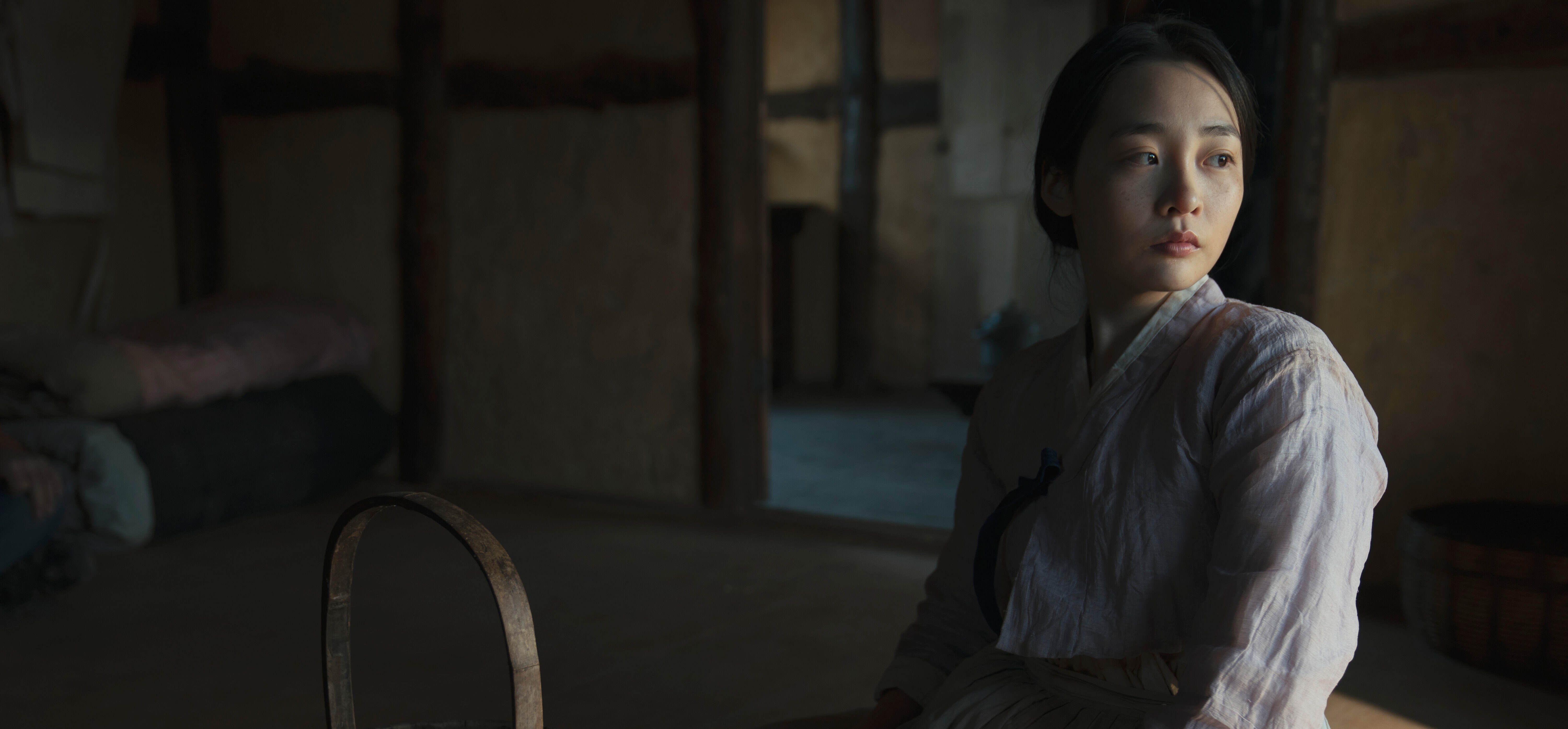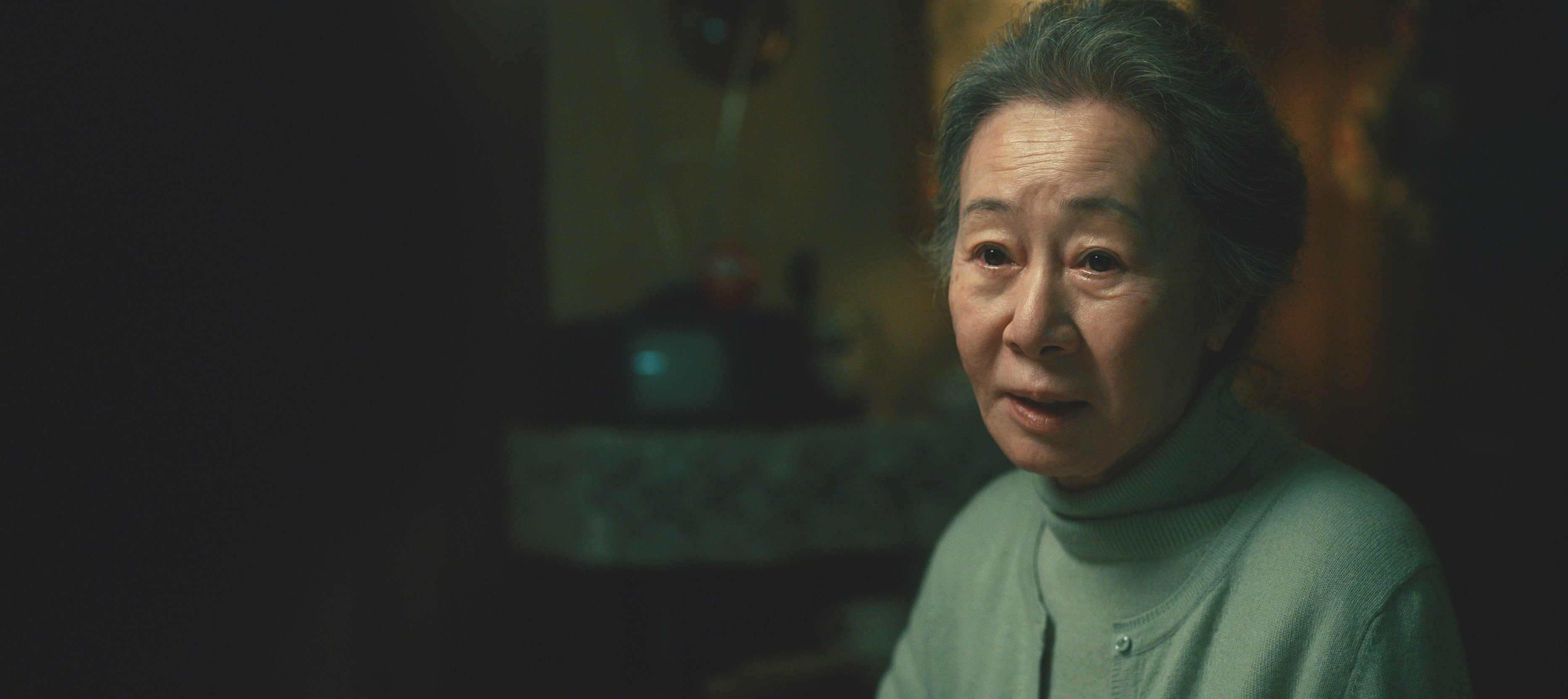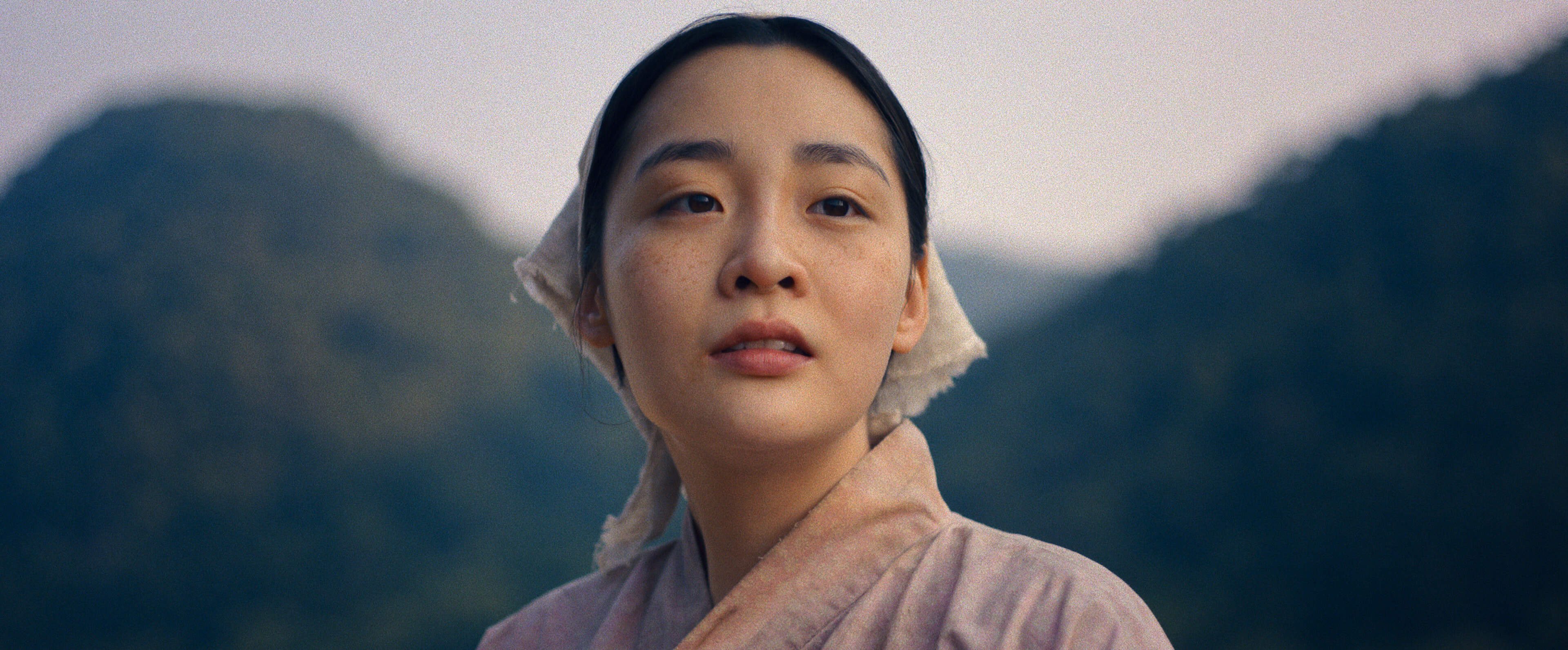Apple TV+’s period drama series ‘Pachinko’ revolves around Kim Sunja, a Korean woman who immigrates to Japan with her husband, Baek Isak, after the invasion of her home country. Sunja lives with her family and fellow Koreans in a poverty-stricken community that endlessly faces scrutiny by Japanese forces. As the show depicts, Japan’s invasion of Korea paved the way for mass migration from the latter country to the Land of the Rising Sun. The women who feature at the very end of the first season of the period drama were part of this historical phenomenon. However, Sunja was not one among them!
Min Jin Lee Started Writing Pachinko Without Sunja
Kim Sunja is a fictional character without an exact real-life counterpart. ‘Pachinko’ is a television adaptation of Min Jin Lee’s novel of the same name. When the Korean American author started writing the novel, the early draft was titled ‘Motherland’ and predominantly followed five years in the life of Solomon Baek. The writer created Sunja after she decided to expand the setting and scope of the novel from five years to the years between 1910 and 1989. In 2007, Lee moved to Japan, which gave her an opportunity to speak with people who immigrated to the country after its invasion of Korea, such as Sunja.

“I needed to meet a couple of hundred Korean Japanese people, and that’s what I did. I went to their houses [and] their businesses. I went to all the different places where they [lived] in Japan because they were everywhere,” Lee told Time Sensitive. These conversations made the author realize that she shouldn’t limit her novel to Solomon, paving the way for the birth of Sunja. “[…] I had to go there and listen and watch and really rethink everything that I knew. Then I realized, ‘Oh, it begins with the first generation.’ Then I thought, ‘Okay, I guess I’ll try that.’ Sunja didn’t exist in 2007. She existed around 2010,” the author added.
Sunja Represents the First Generation of Korean Women Settled in Japan
During Min Jin Lee’s conversations with Korean Japanese people, one common element she discovered was the presence of a matriarch who sacrificed and suffered immensely for the survival of her respective family. “From 2007 to 2011, I interviewed many Korean-Japanese men and women, and a great many of them mentioned a first-generation matriarch who sacrificed much of her life for the next generation, which ultimately led me to Sunja and her world,” the author told BookBrowse about the inspiration behind Sunja. Like these matriarchs, Sunja also suffers immensely for her family’s well-being. She lives among pigs and assumes the responsibility of running the household when the men in her family fail to do so.

Even though Sunja is fictional, her struggles are not at all creations of Lee’s imagination. In reality, several women like her set up shops in open markets and raised pigs in their small houses to feed their families. There were people who sold bootlegged alcohol as the protagonist does towards the end of the first season. “To earn money, first-generation Korean women in Japan worked in open markets, raised pigs in their homes, picked and traded rags and scrap metal, manufactured bootleg alcohol, farmed, and sold homemade goods from carts, among other things,” Lee added, explaining how her character is connected to real Korean women who lived in Japan.
Like how Sunja sells kimchi to feed her loved ones, Korean women sold “boiled corn, tteokbokki, confections, sweet rice cakes, or gimbap” after they moved to Japan. After learning about these experiences and personal histories, Lee wanted to highlight the significance of these women in her novel through the protagonist. Even though they may appear ordinary to the world, the writer aspired to portray how extraordinary they were as far as their loved ones were and are concerned. “Sunja is an ordinary working-class woman who becomes a matriarch of an ordinary family. She is not powerful in the world, but she is important to her family. I wanted to write about an ajumma who is unheralded in history books but who is so important in our daily lives,” Lee told Hyphen.
Sunja is not based on one real person. Rather, she is based on the collective experiences of Korean Japanese women who worked tirelessly and put their lives on the line for their loved ones. Women like Sunja can be found in Japan even today, and some of them feature at the end of the show’s first season.
Read More: What Happened to Noa in Pachinko?


You must be logged in to post a comment.